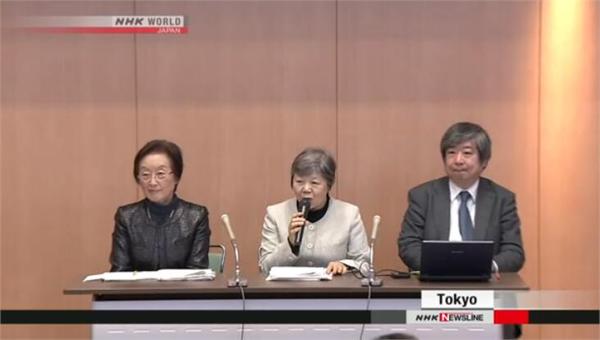
The Japanese nuclear accident has cancer recurrence. The private fund called for a detailed follow-up survey of relapsers affected by the 2011 Fukushima nuclear accident, which provides financial assistance to young people diagnosed with thyroid cancer after a nuclear accident.
At the press conference in Tokyo on Thursday, the 3.11 fund appealed to children with thyroid cancer.
3.11 The name of the fund originated on March 11, 2011, when a tsunami triggered by a strong earthquake caused a nuclear power plant in Fukushima Prefecture to collapse.
A survey conducted by the 3.11 fund showed that 84 children were diagnosed with thyroid cancer after the accident, and the cancer rate rose back to 9.5%, or eight. As a result they had to undergo a second treatment.
The fund said that at the time of the accident seven years ago, eight people were 6 to 15 years old and relapsed on average about 28 months after the first operation. One person relapses only after one year.
Fukushima Prefecture has been providing thyroid cancer screening for local residents aged 18 or younger at the time of the accident.
3.11 The fund pointed out that the county government's expert committee did not consider the recurrence of young thyroid cancer patients.
Fund Director Hisako Sakiyama said that in order to clearly understand the health effects of nuclear accidents, it is important to continue screening, paying special attention to recurrence.
After the nuclear accident, Fukushima Prefecture carried out a thyroid examination for approximately 380,000 children in the prefecture. To date, 159 people have been diagnosed with cancer, and 34 people are suspected of having cancer, but no data on recurrence has been published.
As of the end of January this year, the fund issued medical expenses to 111 patients with thyroid cancer within and outside Fukushima based on medical details and self-declaration. Eight of the 84 people in Fukushima Prefecture at the time of the accident had undergone surgery for cancer recurrence and metastasis, 1 year to 4 years and 4 months after the initial surgery.
Yoshida Akira, former chairman of the Japanese Society of Thyroid Surgery, said: "In adult patients with thyroid cancer, about 10% of them will relapse in the lymph nodes within 10 years, so this data is a bit large."
We are Hospital Electric From China Manufacturer Medical Bed, also known as Hospital Bed Home Care, Hospital Equipment, Nursing Bed, etc., is a hospital bed used by patients when they are hospitalized in the hospital.
There are many classifications of medical beds, and the specific classification methods are as follows: According to the material, it can be divided into ABS medical beds, all stainless steel medical beds, semi-stainless steel medical beds, all steel sprayed medical beds, etc.
According to the function, it can be divided into electric medical beds and manual medical beds. Among them, electric medical beds can be divided into five-function electric medical beds and three-function electric medical beds. Manual medical beds can be divided into double-shake medical beds and single-shake medical beds. Medical beds, flat medical beds.
According to whether it can be moved, it can be divided into a wheeled medical bed and a right-angle medical bed. Among them, electric medical beds are generally movable with wheels.
Hospital Bed Mattress,Anti Bedsore Air Mattress,Inflatable Air Mattress,Homecare Bed Mattress
Haloxylon Ammodendron Medical Equipment Co., Ltd. , https://www.ssmedicaldevic.com